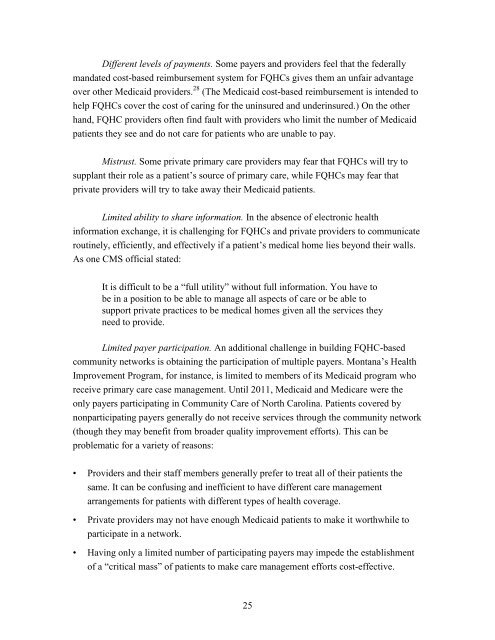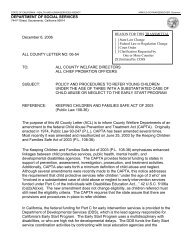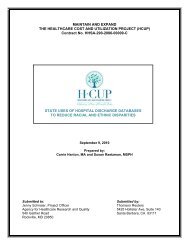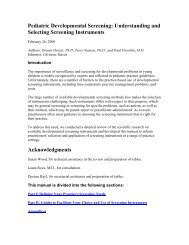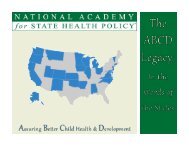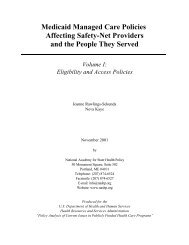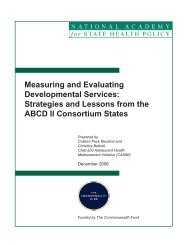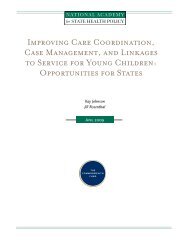Developing Federally Qualified Health Centers into Community ...
Developing Federally Qualified Health Centers into Community ...
Developing Federally Qualified Health Centers into Community ...
Create successful ePaper yourself
Turn your PDF publications into a flip-book with our unique Google optimized e-Paper software.
Different levels of payments. Some payers and providers feel that the federally<br />
mandated cost-based reimbursement system for FQHCs gives them an unfair advantage<br />
over other Medicaid providers. 28 (The Medicaid cost-based reimbursement is intended to<br />
help FQHCs cover the cost of caring for the uninsured and underinsured.) On the other<br />
hand, FQHC providers often find fault with providers who limit the number of Medicaid<br />
patients they see and do not care for patients who are unable to pay.<br />
Mistrust. Some private primary care providers may fear that FQHCs will try to<br />
supplant their role as a patient’s source of primary care, while FQHCs may fear that<br />
private providers will try to take away their Medicaid patients.<br />
Limited ability to share information. In the absence of electronic health<br />
information exchange, it is challenging for FQHCs and private providers to communicate<br />
routinely, efficiently, and effectively if a patient’s medical home lies beyond their walls.<br />
As one CMS official stated:<br />
It is difficult to be a ―full utility‖ without full information. You have to<br />
be in a position to be able to manage all aspects of care or be able to<br />
support private practices to be medical homes given all the services they<br />
need to provide.<br />
Limited payer participation. An additional challenge in building FQHC-based<br />
community networks is obtaining the participation of multiple payers. Montana’s <strong>Health</strong><br />
Improvement Program, for instance, is limited to members of its Medicaid program who<br />
receive primary care case management. Until 2011, Medicaid and Medicare were the<br />
only payers participating in <strong>Community</strong> Care of North Carolina. Patients covered by<br />
nonparticipating payers generally do not receive services through the community network<br />
(though they may benefit from broader quality improvement efforts). This can be<br />
problematic for a variety of reasons:<br />
• Providers and their staff members generally prefer to treat all of their patients the<br />
same. It can be confusing and inefficient to have different care management<br />
arrangements for patients with different types of health coverage.<br />
• Private providers may not have enough Medicaid patients to make it worthwhile to<br />
participate in a network.<br />
• Having only a limited number of participating payers may impede the establishment<br />
of a ―critical mass‖ of patients to make care management efforts cost-effective.<br />
25


